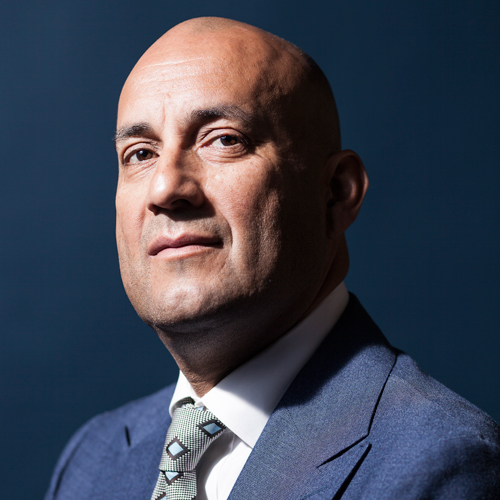When Ernest Cordova was hired by Accenture in 1998, a security division did not yet exist. After a year of learning the ropes, Cordova pitched the idea of forming a sector devoted to security to company leadership. They were intrigued. “I saw a need for a formal security organization as an opportunity,” Cordova says. “I partnered with my colleagues to develop the Security Intelligence Directorate that currently supports Accenture Federal Services in all of its security needs.”
Accenture Federal Services (AFS), the arm of Accenture devoted entirely to serving the federal government, has an acute need for this function because of the high-level, and often sensitive, work they perform for their clients. Inside AFS, information security, personnel security, and physical security are all under Cordova’s purview. Cordova’s oversees the state-of-the-art security systems in place at AFS facilities, which protect employees so they are safeguarded every day when they are away from their families. “Personal security is, of course, the most challenging and the most important responsibility,” he says.
Another challenge Cordova faces is staying ahead of the technological curve and the destructive elements that sometimes come with it—both of which keep information-heavy companies like Accenture on their toes. “At AFS, we must anticipate what the next cyberthreat may be for the federal government,” he says. “We are proactive and try to hit the ground running, but we also need to be reactive in dealing with potential security threats quickly and efficiently.”
Cordova is originally from Española, New Mexico, part of the third generation in his northern New Mexico Family. He was the first in his extended family to get a college degree and says his mother worked three jobs in order for him and his two brothers to go to school. Cordova describes the region of northern New Mexico where he is from as “a diverse community of Hispanics and Native Americans.”
“Española,” he explains, “is also a bedroom community for Los Alamos National Labs, so there were also a lot of people from the East Coast out there, too.”
Cordova landed a high school internship in those neighboring labs. “Working in Los Alamos, I got my first taste of STEM-related activities,” he says. “It was my springboard for me ending up at Accenture and on the East Coast.”
Cordova attributes his interest in security to both his father, a retired career police officer, and his first job out of college. After Cordova graduated from New Mexico State University, he worked for a firm in Albuquerque that provided services to a number of federal government clients. “That’s where all the seeds were planted,” he says of his New Mexican roots.
Cordova has come a long way in his career, but his exposure to cultural diversity at a young age has stayed with him throughout. In looking back on his achievements, building a top-rated security program from the ground up at AFS is up near the top, he says, but he also finds tremendous satisfaction in the work he’s done on his own time to build a culture of diversity within the company and to help empower minority communities across the country.
“Demand for [information technology] talent will continue to explode across industries in the next decade, and we have the opportunity to tap the skills that young people, from a variety of diverse backgrounds, can bring to this field.”
Cordova serves as an executive sponsor for two of Accenture’s biggest employee resource groups (ERG). He sponsors Accenture’s Hispanic American ERG as well as its LGBT group in the Washington, DC, area. “It’s very important to me to leverage my career experience as a mentor. I am at a point where I can turn around and provide career guidance to those wanting to get a leg up. I am also able to represent their voices on the Accenture leadership team, helping to build cultural awareness across the company.”
For Cordova, ERGs represent a platform to reach out to the broader community and leverage his role as a corporate leader. He represents Accenture on the board of the Greater Washington Hispanic Chamber of Commerce, the Human Rights Campaign, and the Hispanic IT Executive Council (HITEC). He additionally reaches the community through Accenture’s global corporate citizenship initiative, Skills to Succeed, which is equipping more than three million people around the world with the skills to get a job or build a business.
“Sometimes I’m asked why it’s so difficult to get young people, especially blacks and Hispanics, interested in technical careers,” he says. “It’s not a matter of getting our young people interested in technical careers—the interest is already there. Demand for IT talent will continue to explode across industries in the next decade, and we have an opportunity to tap the skills that young people, from a variety of diverse backgrounds, can bring to this field.”
Cordova’s efforts are already paying off at Accenture; some of the Hispanic-owned companies that he has networked with through the Hispanic Chamber of Commerce have ended up becoming subcontractors for Accenture. It’s a simple example of the profound approach that Cordova brings to his work. “Paying it forward, giving back to the community, and being accessible to my employees all make me a better leader.” Cordova attributes much of his personal success to having had opportunities early in his life to interact with mentors who let him know that it was possible for him to achieve success through a career in technology.
Now, personal success means being able to turn around and offer that same eye-opening advice and provide opportunities for the next generation.

